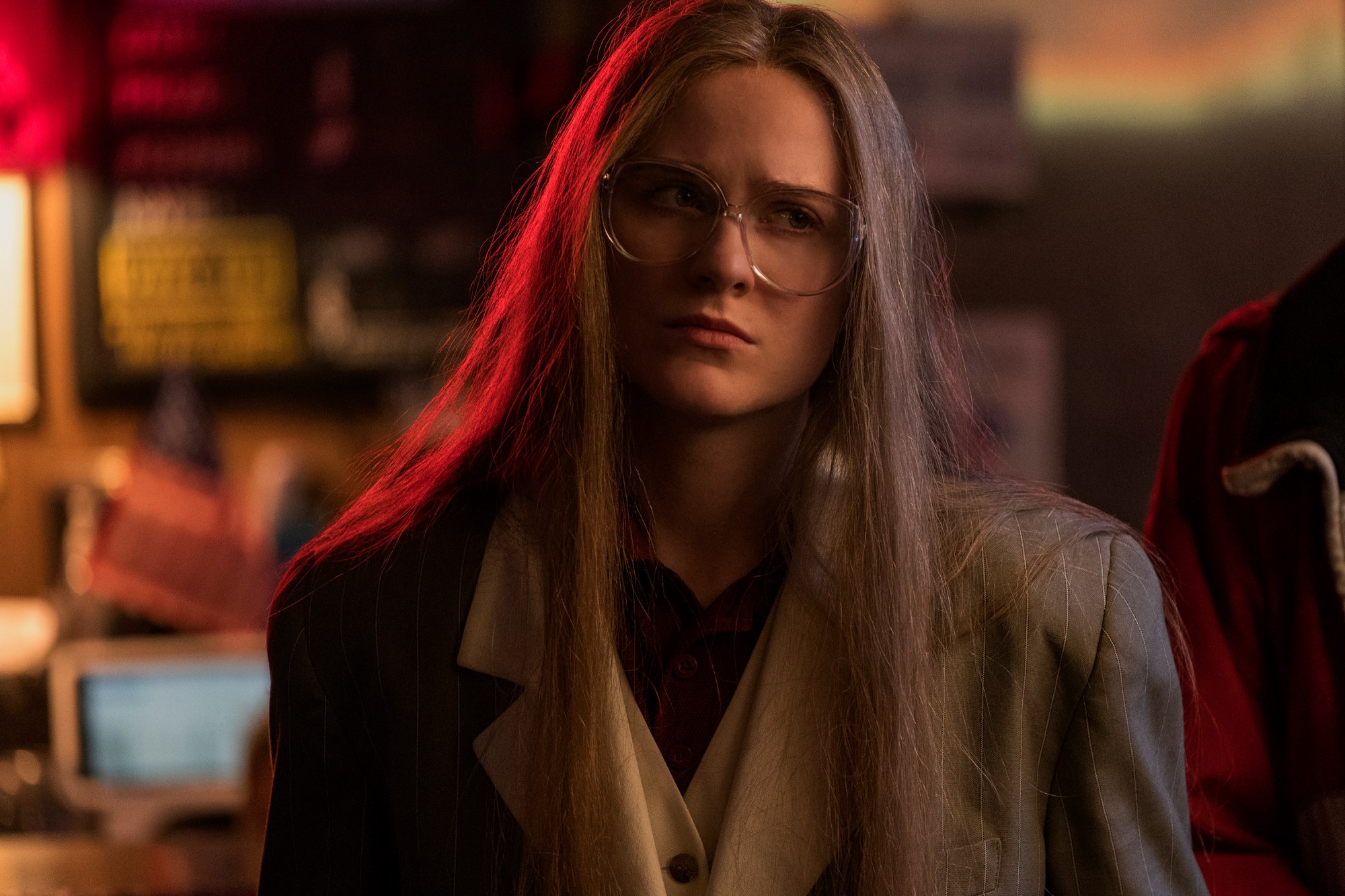Miranda July has spent a lot of time dissecting the characters of her new movie, Kajillionaire. They are a family, a matter of biology, but not so much love and spirit. For the past 26 years, Robert and Theresa Dyne (Richard Jenkins and Debra Winger) have raised their daughter, Old Dolio (Evan Rachel Wood), as a master con artist: stealing mail and scamming airlines with “lost luggage”. Their relationship is transactional; their connection is defined by dividing all of the profits of their scams three ways. That is, until Melanie (Gina Rodriguez), a woman they meet on a scam-inspired flight from New York back to Los Angeles, makes it four. Melanie’s arrival signals a gearshift in the family dynamic: she questions the way Old Dolio has been raised, and sees something her parents have never looked deep enough to discover. What she finds, and the discussions they have, threaten to upend the family’s legacy.
That Old Dolio is the focal point of the movie is fascinating, partly because her ‘opening up’ is so slight that recognising her growth requires a proper dissection. It’s one Miranda hasn’t yet had much of an opportunity to explore, even since Kajillionaire’s Sundance debut back in January: this character’s queer side, grappling with gender identity in a world so zany and hectic that you have to be watching microscopically to make full sense of it.
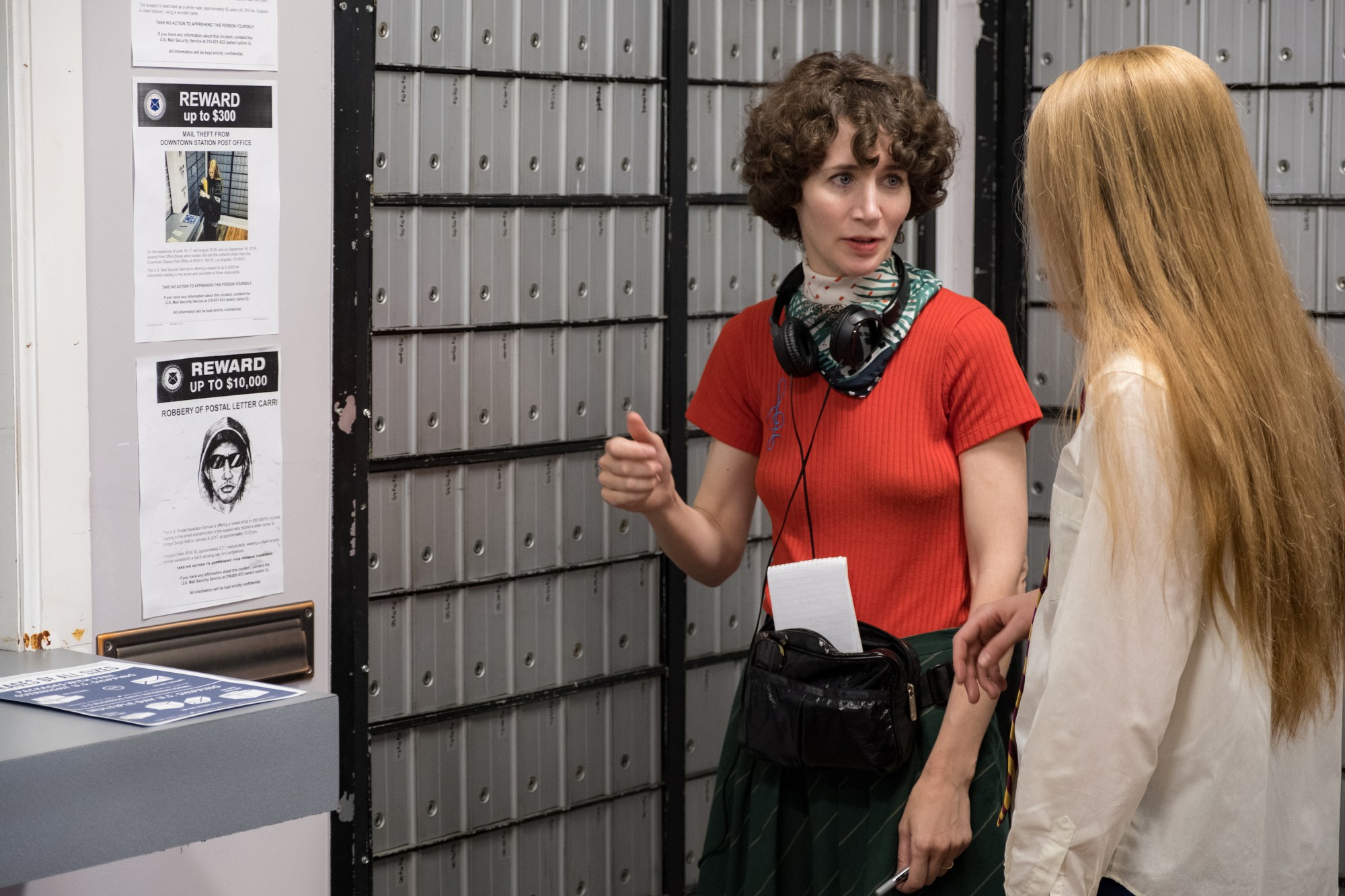
It’s also a subject that — despite being the person who created the character — Miranda is intrigued to see non-binary and queer voices unpack themselves. And so we mediated a conversation between Miranda and someone she has long admired: the non-binary artist, model and actor Bobbi Salvör Menuez, who’s currently in Poland shooting a movie. Together, on a late night video call that connected them on two different continents, the duo explored the juxtaposition of queerness and capitalism, creating a queer protagonist that lives on beyond the filmmaking process and the vital nature of absconding the oppressive, nuclear family set-up in cinema. They also provided us with a film of their first meeting: a bath ritual that signifies the birth of Kajillionaire; a gift to the world.
It’s customary for a filmmaker to describe the project they’ve created. But instead, we asked Bobbi to start by unpacking the film through their eyes; both what it was about and its personal resonance with them.
Bobbi: I want to give the disclaimer that I‘ve just worked a 14-hour day, just in case I’m a little slow! But yes. Kajillionaire! I think it’s a movie about a lot of different things at once. It’s about Old Dolio, a person who has had a very specific ‘training’ instead of a childhood. Old Dolio is the result of parents who have found just one way to be, and it doesn’t include treating Old Dolio as a full person. They meet someone who changes their whole life. It’s about the way in which one person asking a question, in a situation where things haven’t been questioned, can unravel the whole fabric of a family. How am I doing?
Miranda: I thought that was beautiful! As someone who’s been reiterating the plot a million times a day, I would have said what you said. It’s a way of describing the plot while signalling that the movie is getting at things that aren’t on the surface of the story. I wanted to say, Bobbi, you look like a beautiful pearl to me. I’m not sure if it’s Microsoft doing it, or your lotion, but you’re truly luminescent. Am I luminescent?
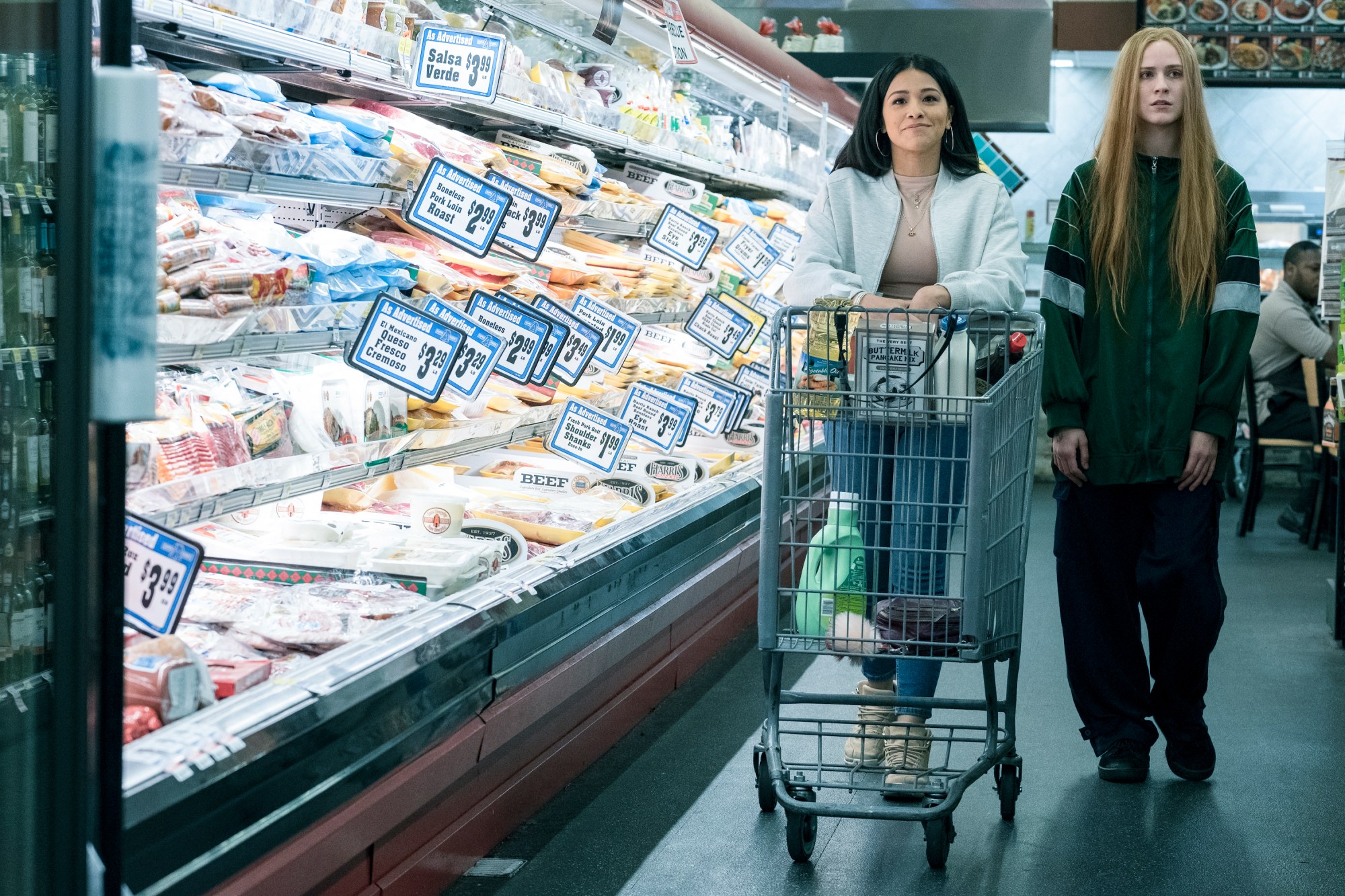
You look like a butterfly to me with your curlers in! Everyone should be thinking about us like a butterfly and a pearl having a conversation!
Honestly, first and foremost, I’m such a fan of yours Bobbi. Gender presentation and then, separately, sexuality are unspoken subjects in this movie, but if you watch it and enjoy this love story, then that is part of the experience of it. I’ve read things where you were quite articulate in talking about these things. My way of talking about them is by making a movie. In some ways, you seek out people to speak about things in their language. But, I mean, we both took a Zoom bath together and performed a ritual.
We did. It was a ritual we created together. I wanted to make an offering to Kajillionaire and to Old Dolio, to a movie in this strange time that deserves rituals. And to have it be something very bodily somehow felt right.
It was a very intimate way to meet a stranger, almost womb-like. I think it will go down in history, my personal history, as a prime example of quarantine tenderness. I think it’s actually too intimate to share, if that was the plan?
[EN: Nevertheless, Miranda and Bobbi have agreed to share with us a portion of the bath, which you can watch below.]
Yeah. I was very flattered, as a mutual fan, when you reached out; my new butterfly friend. I had just watched a trailer before you reached out and was really curious about it. I was picking up on gender themes. It’s interesting to talk about a “fictional” character’s gender in your own terms. As someone who’s a trans person with a bajillion trans friends, I don’t like to talk about someone else’s gender for them, but in this case it feels like we can. Even with Old Dolio, who uses she/her pronouns, I really want to ‘they’ that character a lot.
Me too!
There’s something funny for me even in the look of the character, even if I have a different life story to her in some ways, like the way in which I see that character having to deny, having to state their gender at all. I think there’s something special about seeing characters whose gender experience we may [interpret] as being a trans one or not, and it doesn’t really matter because it’s just an experience that person has. I love to imagine, after the film, what could happen for her? Thinking about the cis and trans binary being a binary I don’t believe comes up when I watch this.
Another reason in having this conversation is that most film critics are still cis white males. So I knew if I was passive, Old Dolio would be described again and again as a dowdy — I just read in The New Yorker her being referred to as a “hippy” or something — and these words are a reflection of these people and their lived experiences. I knew I’d have to be active in seeking out other descriptions of Old Dolio if I wanted to describe her to the world at large. It’s part of me finishing the work of making that character. And while I didn’t want her or characters to speak in a very knowing or articulate way about gender or sexuality, I do want others to.
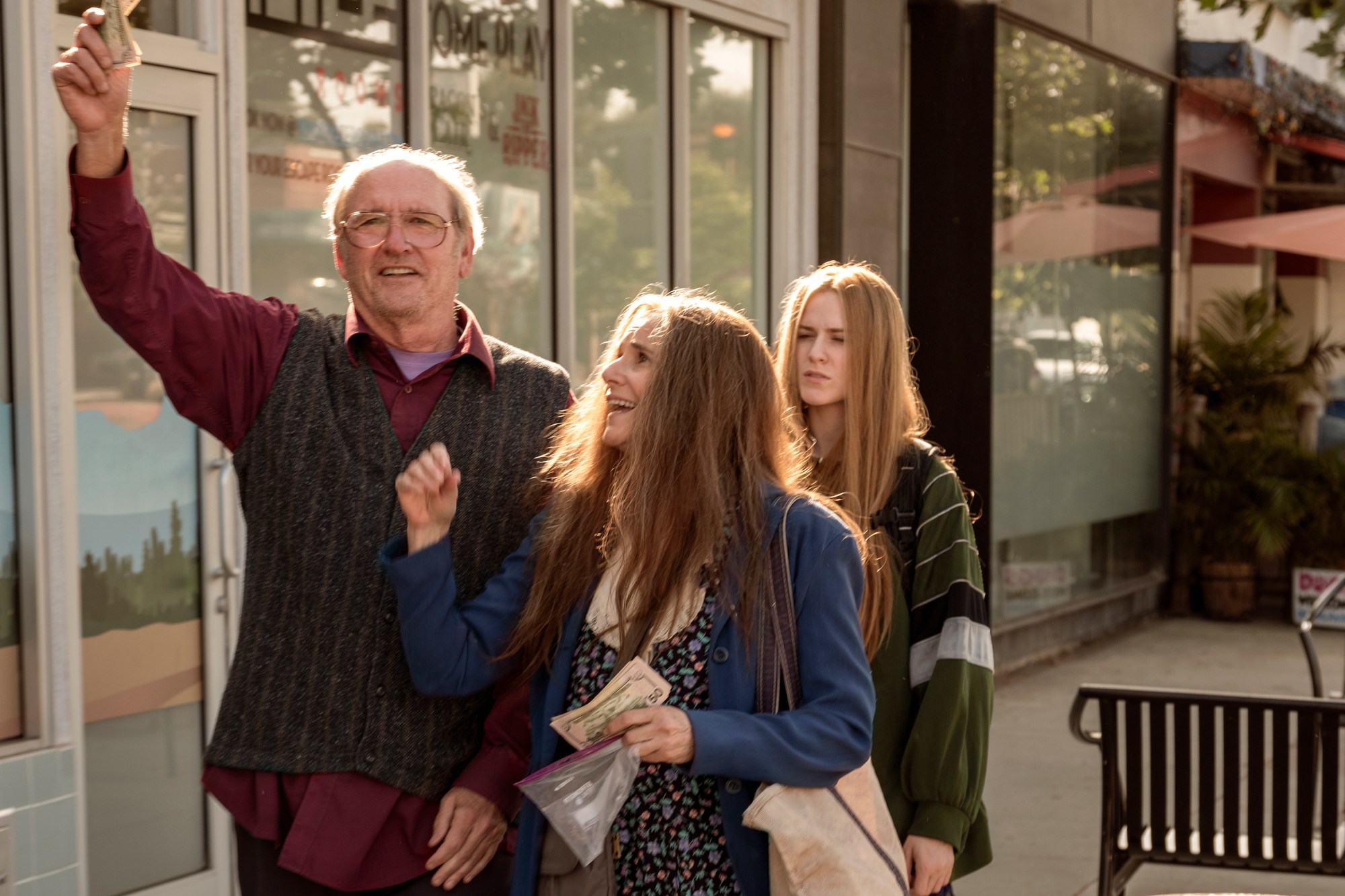
The way the character of Melanie recognises something in Old Dolio’s presentation, there’s something so special there. It talks about how, as queer people, we’re sometimes aware of what we’re flagging, but that often we’re not. I wouldn’t describe Old Dolio as a closeted character, more that she’s been closeted from the entire world outside of her family. But there’s something sacred that’s captured in the film about the way in which finding others as a queer person or an outsider, how the act of being witnessed, is in itself transformative.
That’s making me think about how Old Dolio’s family are seemingly outsiders, but they’re not actually radical. They have this self righteousness and snobbery, and when you’re looking down on everyone, you’re very alone. Then Melanie is incredibly inclusive. So she might seem more normie or conventional. That was kind of the idea: she is ultimately much more radical and avant-garde in the things she proposes and sets up for Old Dolio to transform through. But it’s tricky in terms of capitalism. You’ve got the family who want to skim off capitalism: they don’t believe in credit cards, for example, but it could all be associated with the system they’re outside of. And then Melanie, who has so much stuff in her apartment. When she’s making pancakes and tells Old Dolio that, “Most happiness comes from dumb things,” I’d purport that she’s suggesting pleasure is important. That’s tricky: how is luxury and pleasure queer? How is that radical? We shouldn’t have to be an outsider for those ideas to be accessible to you.
You should know I don’t think like this when I’m writing! This is me spit-balling as if I didn’t make it. That’s the use of art for me. To go into things I don’t understand and to try and make stuff in that territory without having to be an expert, because then it’s more bulletproof. I try not to tie things too much to my own personal history in my movies, but I know I didn’t grow up with the idea of stackable pancakes being part of my childhood. Any pleasure that might come from silly things was frowned upon. So Old Dolio might be my ode to all the women that I’ve been in love with. Melanie is the woman that has saved my life through this joyful reparenting.
It feels relevant to me to hear you weaving in parts of this film as a personal process for you while stepping into places that are unknown — because who doesn’t? Not only is it relevant, but it is a part of the way in which anyone who has desires that they’re told they can’t have would react: be it stacked pancakes or to fuck someone of the same body, or to have gay sex. If you’ve been told it’s wrong or inappropriate, then find a moment to give yourself permission to feel and fulfil it — that’s earth shattering.
When Old Dolio [responds to a question about how her parents treat her with] ‘Well they’re my parents’, Melanie asks, ‘In what way?’. Who gives that badge out? Is it an experience that includes nurturing? Or is it more contractual with strict limitations? Often, biological cubic families have those requirements in-built. It’s no one in particular’s fault.
This family is so weird. I write fiction because it feels more free, but I could also write the same exact story with the family you spoke of; one I grew up in and I’m not trying to replicate. But it’s hard to sometimes get at the thing that you’re trying to say when you’re being totally literal. With this family, it’s clear that instead of love or intimacy, there’s a code. These families are so siloed that anything goes. That’s true of Old Dolio’s family too: it’s a closed structure. I wish I could point out that that is true of every family. Before you go saying, ‘They’re so weird’, I think that it mirrors what we’re doing.
I guess it’s not a mistake that I made this movie when I became a mother. It’s the first film I’ve made as a mother and a daughter. It’s hard for people to see how this could be autobiographical. You’re pointing out the construction of family because you’re trying to [point out] that most members of the family are not conforming. It makes it easy for us to breast crawl our way to a new future. But it takes active work and consciousness. To slide into the default, it’s really hard not to.
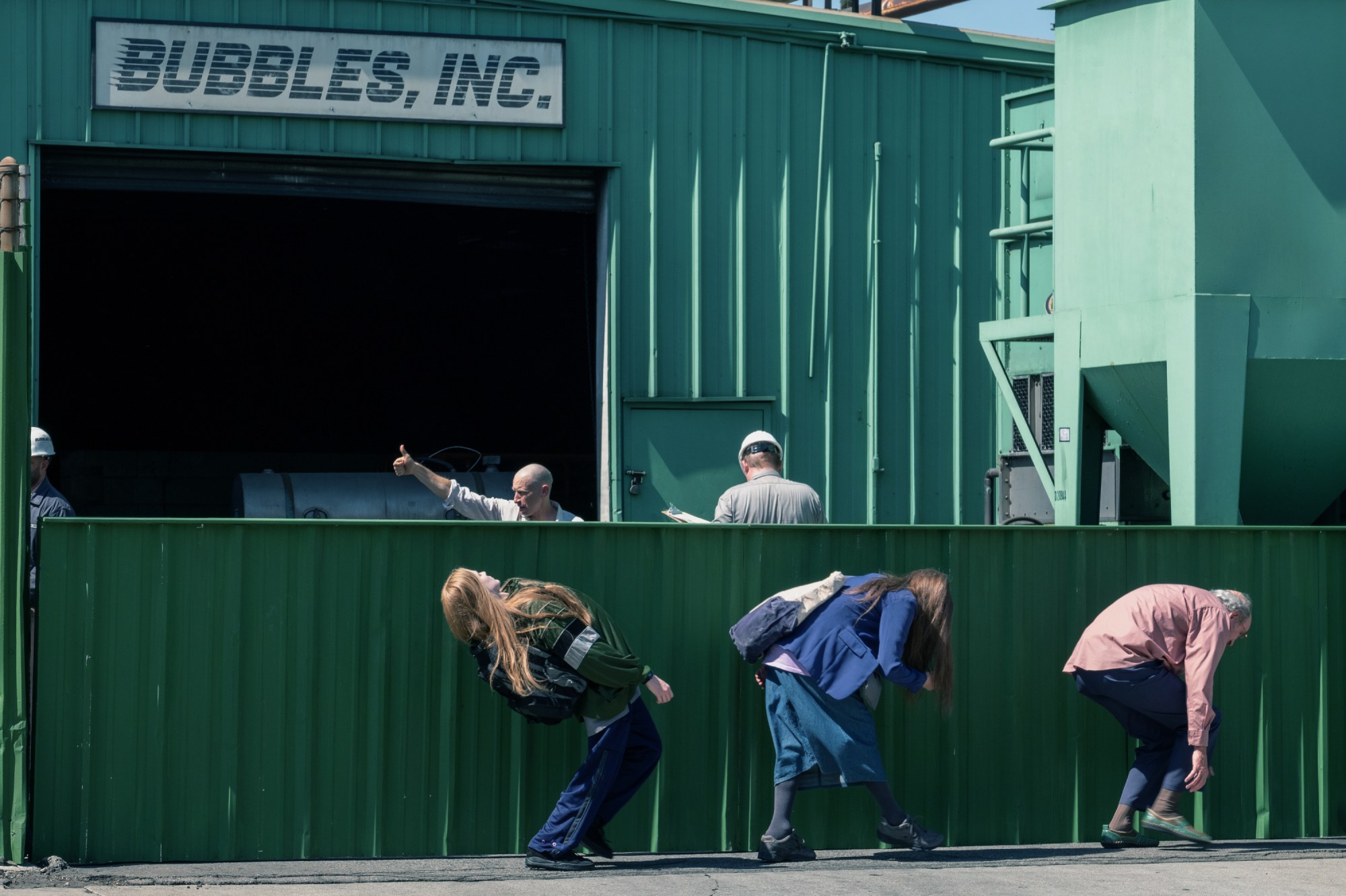
Although narratively it seems like this family is operating in an absurd way, in a way — in my experience — it actually makes it feel more universal. In lots of other movies, there’s a ‘normal’ family, but it’s never ‘off’ enough for me to relate to. It can be alienating. There’s a way in which the hyper dysfunctionality of this family welcomes me in as a viewer. It alleviates the shame that someone might have of their own family.
When you talk about, the way in which these roles are set. It makes me think about the way the gender binary has these male and female roles that everyone’s having their own failed attempt at. All of these come into the construction of the Plato’s Cave version is, and it sets everyone up to feel like a failure at being a mom or a dad, being a son, daughter or non-binary child.
I’m glad you understood the film in this way. To me, it felt like I threw you something and you caught it, and it was very sweet.
So, you’re going to go to sleep in Poland now.
That’s a good idea! I haven’t looked at the call sheet for tomorrow yet, but I’m expecting something similar. It’s been an experience!
Call me again, I want to hear all about it.
This conversation has been edited and condensed for clarity.
Kajillionaire is in US cinemas now, and will be released in the UK on October 9.
